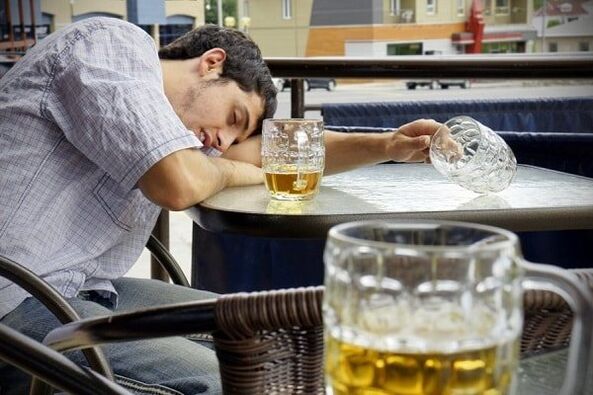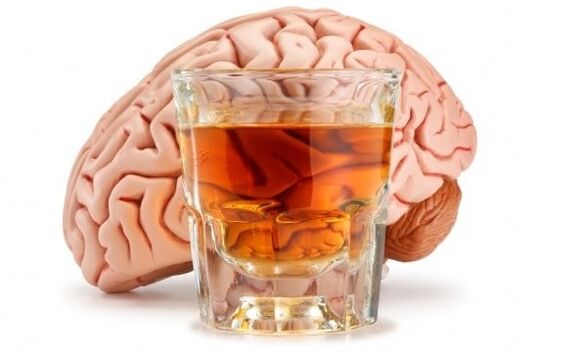Alcoholism and its treatment began to be discussed more and more often. There is a problem. How to help an alcoholic quit?
This question is asked by many family members with similar problems, usually the wife of an alcoholic, who dreams that one day her husband will quit drinking. How to help an alcoholic quit drinking?
When you want to help an alcoholic patient, you are often accompanied by a subjective feeling about the problem. You are stimulated by alcohol, which complicates family relationships and contributes to financial difficulties.
An alcoholic may have only the vague impression that the problem is out of control and often see no problem with alcohol abuse.
He doesn't understand that he has to do something about alcohol addiction, especially when asked for drug treatment. Alcoholics sincerely deny it.
In the eyes of a drunkard, others want to help him strengthen things. They are like enemies, not helpers and allies. What can be done to effectively help drunk people at home?

How to help an alcoholic quit drinking?
The paradox of support given to a drinker.
Many wives of a man who is drinking wonder what family life would be like if the husband stopped drinking. In her grief and anger, she throws out arguments like, "If you loved me, you'd drink this wine a long time ago. "Unfortunately, this type of speech just brings about a fundamentally different result than intended.
Increased guilt in the drunk in the country, as a result, the sick person wants to drink alcohol. An alcoholic's behavior is not a manifestation of his disobedience, but rather a consequence of illness.
His emotions, thoughts and will began to be guided by alcohol, from which it was difficult to get out. Alcohol becomes a way to drown out sadness, depression, shame, stress, routine.
The mechanism of addiction is that ethanol turns off negative emotions, in return, at least for a short time, positive emotions - joy, relaxation, peace. Once he's sober, boredom overwhelms the person, and then another bottle or beer becomes the "medicine".
A person dependent on alcohol, under the influence of a drink, changes a bad feeling into a pleasant one, resulting in a complete lack of desire to change anything in his life. Therefore, the best way to help an alcoholic is to help the alcoholic to face reality when he is sober.
Let him experience the consequences of being drunk, such as waking up on a park bench without his watch or shoes on, paying a drunk driving fine, and being reprimanded by his boss for not showing up at work. after an event with a colleague.

Every negative experience of binge drinking will be a signal to the drinker that drinking is not attractive at all and is a serious problem that creates other difficulties - problems with relationships with family orIn the work.
Unfortunately, many people want to help a loved one, rack their brains about how to help an alcoholic quit, and go to great lengths to hide the problem of alcoholism so that the family doesn't know about it.
Instead of calling the problem "alcohol addiction" and letting the intoxicated person experience the negative consequences of alcohol abuse, people do something completely different. They defended the drunkard in the country, justified his drinking, hid alcoholic beverages from him, denied that they had a problem with alcohol at all.
As a result, drinking households feel "protected" and can still drink alcohol without punishment. Often, those who want to free alcoholics from their shackles unwittingly become helpers in drinking and contribute to delaying the decision to quit.
The most common victims of homosexuality are the wives of alcoholics. If the husband is an alcoholic, then he is addicted to a chemical - ethanol, and strangely his wife becomes dependent on her alcoholic husband.
She becomes a so-called partner who doesn't trust anyone in her spouse's world, and in desperation she is constantly preoccupied with finding a new job to pay her financial obligations. main partner. This led her to lie to the kids that Dad was sick, wasn't an alcoholic, neglected both herself and the kids, and didn't care about her needs.
This problem also needs some therapy. How to help an alcoholic quit? Until the wife of the alcoholic understands that she is not helping or protecting him from the negative consequences of drunkenness, then the husband will drink.
Co-addiction is a series of negligent behaviors by the sexual partner of an alcoholic who is trying to adapt to a pathological situation. Unfortunately, this only adds to further pathologies and problems.

Then this family came with not one, but two addictions - alcoholism and alcoholism. The wife does everything in good faith - she hopes that in this way she will make it easier for her husband to get out of his addiction. Unfortunately, her efforts had the opposite effect - she inadvertently provoked further illness.
Giving a lot of attention, caring, making promises, lying, defending - nothing at all. How to help an alcoholic quit? To help an alcoholic stop drinking once and for all, you need to stop pretending, admit that you are powerless, and seek professional help.
Helping an alcoholic is an ungrateful role as the alcoholic will fight fiercely for their drink. Having decided to help an alcoholic, it is important to remember that this is the work of many years, not a day.
A drinker will not change under the influence of even the most violent obstacle. On the contrary, some people believe that it is impossible to help an alcoholic on its own, because you can only harm yourself. Encourage people to seek help from specialized centers such as addiction therapy centers and others.
Tips to help alcoholics
How to help not to harm and not increase the development of alcoholism?

Here are some tips and tricks to keep in mind when deciding to support and treat an alcoholic:
- Accept that alcoholism is a chronic disease. Don't see it as embarrassing and embarrassing for your family or something to hide from the world.
- An alcoholic is like a spoiled child that needs to be punished for lack of discipline and disobedience!
- Don't believe a drunkard's promises when you realize they can be fulfilled! For example, an alcoholic may declare his desire to "change cosmetics", ensuring that he will change drinks for weaker ones. Don't expect drastic changes prompted by a quarrel or blackmail.
- Be steadfast! If you said you would do something, do it. Don't worry about leaving when you're not ready.
- No need for reproaches, don't get involved in conflicts, don't read sermons, especially when one is drunk. He already knows everything that you want to inspire him. This behavior only causes more lies and presents unfounded promises.
- Do not expect an immediate and quick way to solve the problem! Alcoholism is a chronic disease, even long-term abstinence does not guarantee that the disease will not recur. Drinking monastery tea daily, it effectively eliminates alcohol and nicotine addiction.
- Don't check how many alcoholic drinks there are, don't throw away purchased bottles, but also don't allow widespread access to alcohol - this will only push alcoholics into more desperate efforts to getalcohol and find opportunities to drink.
- Never drink together in the hope that he will cut back and drink less. How can you help an alcoholic quit drinking if you are drinking together? No way.
- Do not let the drunkard lie, do not believe his lies and promises, because in this way you allow him to hope that he can outwit his loved ones.
- Try to give alcoholics and love. Appreciate his effort to stay sober. Remember that alcoholism is an illness, and you don't have to yell at anyone about it.
Helping an alcoholic is most effective if you just leave him alone - no rehab, no screaming, no crying, no begging, no sick day preparation, no borrowing money, no cleaning up afterwhen drunk. parties, let him try to put things in order with a hangover. . .
Let him drink at his own peril and risk. The sooner he hits the bottom, the more likely he will quickly want to give it up to start getting better.

































